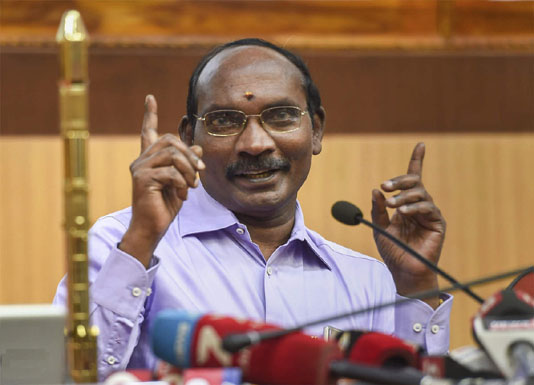NEW DELHI, Dec. 16, 2018 (BSS/XINHUA) – The Indian Space Research
Organisation (ISRO) is working on to develop a new technology to give a new
life to the “dead” rockets, in a bid to make use of the last stage of the
Polar Satellite Launch Vehicle (PSLV) rockets for space examinations, ISRO
chief K. Sivan has reportedly said.
In an interview with an English daily, Sivan is learnt to have claimed
that India was the only country in the world to work on this new technology.
This would largely enable space students to use these “alive” rockets for
conducting space experiments for free, he said.
According to a report in English daily The Times of India, the ISRO is
going to perform a technology demonstration of this new system when it
launches the PSLV C44 rocket in January.
“Normally the last stage of a PSLV rocket after releasing the primary
satellite in space becomes dead and categorised as debris. Now we are working
on a new technology where we will give life to this “dead” last stage of PSLV
for six months,” Sivan said.
Sivan further stated that this would be a cost-effective way to perform
experiments by space students in space even as there would not be a need to
launch a separate rocket for the purpose.
According to the ISRO chairman, the last stage of a rocket launch usually
keeps tumbling in the same orbit without any control where it released the
satellite. “To keep it stabilized we will keep additional fuel in a separate
compartment without disturbing the original configuration,” Sivan added.
He further explained that the last stage of a rocket launch keeps falling
and enters the Earth’s atmosphere and burns out. “By inserting batteries and
a solar panel, we can increase its life span for months by making it
communicable from the ground station. It can then be used as a platform for
experiments like microgravity tests,” he said.
“Students don’t need to launch a full-fledged satellite. They would just
need the instruments with which they want to do experiments and attach them
with the last stage. The instruments will be powered by the last stage,” he
reportedly said in the interview.



